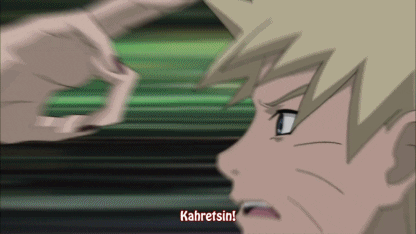This would give me insane levels of anxiety and I'm not an anxious person to begin with. It actually astonishes me that people can do it.
If I have an emotional problem, I have to deal with it. If it involves another person and they aren't engaging me about the matter, I will provoke fights and even explode until they do. If there isn't another person involved, I'll deal with it on my own.
But ignoring emotional problems of that sort and pretending they don't exist feels like having a large parasite inside of me.
Yeah this sounds familiar. I don't 'provoke fights', but I do approach the other person.
As I work though my trauma I'm more and more extroverted to the point that I've tested ENFJ a few times now. Our identities are are so based in our behaviors and the brain is so malleable that we can essentially behave however we'd like to behave if we consciously put in the effort. So type then gets even more convoluted when you're purposefully manipulating your behavior to get to the state you enjoy living in.
I get this, though I wouldn't invoke the categories of extroversion/introversion to describe what's happening, since I'm certain that those terms have a physiological basis in our neuro-chemistry (the thickness of the membranes around our neurons; whether our dopamine or acetlylcholine circuits are shorter, &c.). Rather, I do become more 'outgoing' when my 'self' is comfortable in the current company. For instance, I'm much quieter and more reserved around my family than I am anywhere else - they are practically all ESTJ and for as long as I can remember I just didn't know how to engage with them, or they with me.
I definitely hypostatize. (Thank you for the word!)
When I was younger, I pushed big feelings aside often because I needed to remain in control of myself and my behaviour. However, I learnt that the deeper you push, the more powerful the overtake is, and the emotions bubble back up ten fold.
My process now is to experience, dissect, understand, and manage. The way to do that for me is I talk about it - by myself, with someone else (who is on the same level as me). I write it out, I seek art, I produce art, I give it form somehow. This way it is easier for me to get a handle on it and deal with it.
In terms of MBTI, I would say this would be my Te and Fi working in tandem. Sometimes the process takes years (like recovering from trauma) or a couple of hours (like a fight with a partner), depending on how complex and routine the problem is.
Personally I think this is a learning response that should be the default for most intuitives, and if we've been raised deliberately or by trauma to do the opposite then it's going to cause psychological problems.
To hypostatise engages our ability to abstract and create more manageable concepts from the undifferentiated morass of thoughts and emotions that constitute reality. In doing this we lead with our strengths ('we' as in 'intuitives') - to the outside world we 'overthink' things in order to control them.
In that vein, I think there might be a case here for suggesting that different personality types
should be encouraged to manage emotional problems in different ways, though I'm using 'personality type' to refer to the neurochemical differences that express on a spectrum between IN and ES: IN preferring acetlycholine and having thinner neuronal membranes, resulting in people we might think of as 'sensitives', with ES preferring dopamine and having thicker neuronal membranes, resulting in people we might think of as 'robusts'.
That is, we might encourage IN types to hypostatise and analyse, and ES to 'cope' and 'repress', and in fact the IN bias in therapy and counselling might account for some of its ineffectiveness (even to the extent of being
counterproductive) we see in large samples, such as in the case of the widely publicised
study on post-9/11 trauma therapy.
People caught somewhere in the middle of this IN-ES spectrum (think ENxx or ISxx) might be especially torn between the two approaches, as either
neither seems to work, or they
both do, leading to frustration with
both repressive ('I need to get this feeling
out') and expressive ('I need to stop whinging and just get on with things') methods.

This.... is Clemenceau, right?


